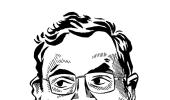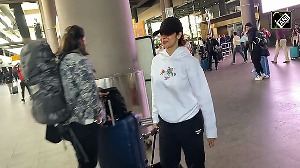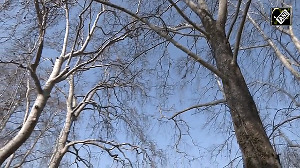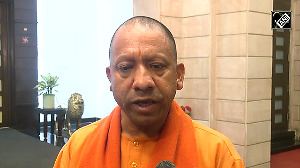'We were sure our appeal would succeed. We knew we could break down the evidence and show it was hollow.'

It took an army of lawyers.
Behind the successful battle to prove the innocence of Professor G N Saibaba and his co-accused, went years of preparation. The backbone of that preparation was the work put in by a group of lawyers, all of whom had been juniors to Advocate Surendra Gadling.
Advocates Barun Kumar, Nihal Singh Rathod, Harshal Lingayat and Akash Sorte, worked as a team to brief the seniors who argued in court: Advocates Trideep Pais, Pradeep Mandhyan and S P Dharmadhikari.
Professor Saibaba, Mahesh Tirki, Pandu Narote (he died in custody August 2022), Hem Mishra, and Prashant Rahi were sentenced to life imprisonment on charges of being Maoists in 2017, while Vijay Tirki got a 10-year-sentence. The appeal against their conviction was filed immediately.
But in 2018, Surendra Gadling, the defence lawyer in the trial court, who had filed the appeal, was arrested in the Bhima Koregaon case.
"At that time, the appeal hadn't even been listed for hearing," recalls Advocate Barun Kumar, who joined Gadling's team at the fag end of the trial, after the recording of evidence was over.

Their first priority was to get a suspension of sentence for the accused and bail, recalls Barun. However, they manged to get bail only for Vijay Tirki. Professor Saibaba's appeals for bail even on medical grounds were rejected.
After repeated rejections of appeals for bail and parole, including when Professor Saibaba's mother was ill and then passed away, the court asked them to prepare for the final hearing of the appeal, recalls Barun. But courts were working only through video conferencing through the Covid lockdown.
"Given the bulky documents, it wouldn't have been possible to argue the appeal through video conferencing," says Barun.

After Gadling was arrested, new lawyers had to be found. There wasn't just one lawyer representing all the accused. Hence the juniors divided the work of briefing the three senior lawyers, says Akash Sorte, who joined Gadling as a junior at the appeal stage.
"We were sure our appeal would succeed," recalls Sorte. "We knew we could break down the evidence and show it was hollow."
In Gadling's absence, what his juniors banked on were his written arguments and the proceedings of his cross-examination. "We would read and re-read them," recalls Barun. "But it was Pradeep Sir (Pradeep Mandhyan) who taught us to read between the lines. He made us study the FIR for an entire day!"
"I still remember his words: 'It is not the accused who have conspired; it is the other side that's entered into a conspiracy",' adds Barun. "He could decipher the mind of the police, and he developed his arguments like a story teller. He taught us how to look for the larger picture behind the police documents."

Harshal Lingayat was Gadling's junior throughout the trial. Speaking to Rediff.com on Wednesday while driving to Gadchiroli to get the necessary documents for Professor Saibaba's release, the 41 year old recalled how confident they had been that all the accused would get acquitted by the trial court.
"The nature of the evidence against them gave us that confidence, but the judge overlooked it. Every single point that's been listed by the high court was pointed out by us. These arguments were noted, but never considered," he said.
Yet, lamented Barun, a hype was created around that sessions court judgment. It was even found worthy of being included in the SCC Web site (Supreme Court Cases) and on Manupatra, an online data base for legal research.
Lingayat was in court when Gadling was told that after Professor Saibaba, his turn would be next. (Details of these threats have been mentioned in Gadling's application for bail in the Bhima Koregaon case.)
Sorte has been meeting Professor Saibaba in the Nagpur Central Jail all these seven years, handing over medicines, clothes and dealing with hostile jailors. "There used to be an intelligence officer taking photographs of our meetings in jail," he alleges.
Despite these risks, none of the juniors dropped out of the case. Indeed, they are also involved in the Bhima Koregaon case as defence lawyers. Barun Kumar has appeared before the Bhima Koregaon Commission of Inquiry as Harshali Poddar's lawyer.

'In criminal cases, cross-examination is the only effective weapon in the armory of defence to impeach the credibility of prosecution witnesses,' says the judgment acquitting Saibaba and his co-accused.
The judges rely significantly on the cross-examination of key witnesses that took place during the trial. That cross-examination was conducted by Surendra Gadling.
Gadling meticulously scrutinised all the documents relied upon by the police, such as FIRs, seizure memos, arrest panchnamas, and confronted the witnesses, including the investigating officer, the panch witnesses, and even the magistrate before whom two of the accused allegedly confessed, with the discrepancies he found in them.
His cross-examination showed how the provisions of UAPA were flouted by the police throughout the case.
Perhaps the most shocking example of police illegality were the admissions made under cross-examination by Jagat Bhole, who worked as a barber on the campus of Delhi University, and who was roped in against his will by the police as a panch witness for the raid on Professor Saibaba's home.
In his cross-examination, Bhole said he had told the police he was illiterate. He also said that Professor Saibaba had requested them to conduct the search in the presence of his lawyer or any of his students who had rushed to his house hearing of the raid.
Ignoring both their pleas, said Bhole, the police kept him and Professor Saibaba out of the house and locked the doors of the house while they conducted the search.
Thus he witnessed neither the search nor the seizure of material from Saibaba's home.
Two panch witnesses were examined. Both admitted to being illiterate and not knowing how to differentiate between electronic deices such as CD, DVD, pen-drives, etc, which were seized. While one admitted to be a stock police panch witness, the other admitted to not having witnessed the search!

Among the discrepancies brought out in police documents were:
1. Over-writing on FIRs,
2. Different handwriting and different inks used on the same FIR to fill in different details.
3. Different dates on the first and last pages of arrest panchnamas.
4. The date on the bottom of screenshots showing the Facebook pages of Hem Mishra preceded the official date of his arrest, whereas police claimed that he had opened the page for them after his arrest.
5. The seizure panchnamas of the articles seized from Professor Saibaba's house did not indicate that the seized articles were sealed with wax, or labelled with the panch's signature.
Observed the court: 'The prosecution case entirely hinges around the seizure of incriminating material from the accused... arrest and seizure of incriminating material is the backbone or foundation of the entire prosecution.'
Thanks to the discrepancies that came through during Gadling's cross-examination, which was relied upon by the judges, the court concluded that the defence had 'succeeded in creating a reasonable doubt' about every aspect of collection of evidence, from the date of the arrest, to the seizure of 'incriminating material' from the accused.

For this stellar work as a lawyer, said his junior Harshal Lingayat, Gadling was suitably rewarded -- with arrest in June 2018, a year after Professor Saibaba was convicted.
Interestingly, Sub Divisional Police Officer (Gadchiroli) Suhas Bawache, who arrested Professor Saibaba, and was the investigating officer in the case, was felicitated by then Maharashtra chief minister Devendra Fadnavis for his 'painstaking investigation' in the case that resulted in the conviction of Professor Saibaba and his co-accused. He is now a deputy commissioner of police.
Coincidentally, he was with the Pune police when they raided the homes of Father Stan Swamy and Delhi University Professor Hany Babu, both of whom were arrested in the Bhima Koregaon case. Father Stan Swamy died in custody in 2021.
Feature Presentation: Aslam Hunani/Rediff.com











 © 2025
© 2025